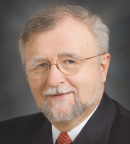Invasive disease–free survival continued to be significantly improved for patients with hormone receptor–positive, HER2-negative, early-stage breast cancer who received the CDK4/6 inhibitor ribociclib plus a nonsteroidal aromatase inhibitor compared with a nonsteroidal aromatase inhibitor alone. These results are based on the final invasive disease–free survival analysis of the phase III NATALEE trial, which were presented at the 2023 San Antonio Breast Cancer Symposium.1 The final analysis was performed 5 months after the previous interim analysis.
Invasive disease–free survival was significantly extended in patients randomly assigned to receive ribociclib plus an aromatase inhibitor vs an aromatase inhibitor alone, corresponding to a 25% reduction in the risk of recurrent invasive disease (P = .006). The rates of invasive disease–free survival at 3 years were 90.7% with the combination and 87.6% with hormonal therapy alone.
“At the protocol-specified final invasive disease–free analysis of the NATALEE trial, the addition of ribociclib to standard adjuvant endocrine therapy continues to show a highly significant benefit compared with endocrine therapy alone, with 78% of patients no longer receiving ribociclib,” stated lead author Gabriel N. Hortobagyi, MD, of The University of Texas MD Anderson Cancer Center. “Such benefit is consistent throughout the various prognostic subgroups analyzed, and similar benefits were observed in relapse-free survival and distant disease–free survival.”

Gabriel N. Hortobagyi, MD
Most breast cancers are diagnosed at stages I to III. Many patients with early-stage hormone receptor–positive disease are cured with the current standard of care—surgery, radiotherapy, chemotherapy, and endocrine therapy. However, about one-third of those with stage II disease and more than half of those with stage III disease will have a recurrence. Therefore, improved treatments are needed.
The addition of riboclicib to endocrine therapy has been shown to benefit patients with advanced breast cancer in the first- and second-line settings; the therapy also may improve quality of life. Furthermore, the NATALEE trial provided evidence that ribociclib may improve outcomes in patients with earlier-stage breast cancer that has not spread.
“Median overall survival [in advanced breast cancer] with this combination now exceeds 5 years,” he noted.
Study Details
NATALEE enrolled 5,101 postmenopausal women and men from 20 different countries who had stage IIA, IIB, or III hormone receptor–positive, HER2-negative breast cancer and were at risk of recurrence. Participants were randomly assigned to receive adjuvant ribociclib for 3 years with hormonal therapy for at least 5 years or hormone therapy alone for at least 5 years. The primary endpoint was invasive disease–free survival. Hormonal therapy included either anastrozole or letrozole for 5 years and goserelin in men and premenopausal women. In patients with node-negative disease, the risk of recurrence was defined as grade 2 plus evidence of high risk (Ki67 index > 20%; Oncotype DX Breast Recurrence Score > 26; or via genomic risk profiling). Other criteria for high-risk disease included node-positive disease or stage II or III disease.
Findings of NATALEE showed that at the July 2023 data cutoff, 1,091 of the 2,549 patients (42.8%) who received the ribociclib-based combination completed 3 years of treatment.
Key Results
For the final analysis, median follow-up was 33.3 months. Invasive disease–free survival events occurred in 226 of the 2,549 patients (8.9%) in the ribociclib-containing arm and in 283 of the 2,552 patients (11.1%) in the aromatase inhibitor–alone arm (P = .0006). The 3-year invasive disease–free survival rate was 90.7% with ribociclib vs 87.6% without it.
The benefit in invasive disease–free survival was observed across all patient subgroups, including those with node-negative, stage II, and stage III disease. For patients with node-negative disease, the 3-year invasive disease–free survival rate was 93.2% vs 90.6% in the ribociclib-containing and aromatase inhibitor–alone arms, respectively (27.7% risk reduction). The 3-year invasive disease–free survival rate in patients with stage II disease was 94.2% vs 92.6% (30% risk reduction), and it was 88.1% vs 83.8% in patients with stage III disease (24.5% risk reduction).
“I’d like to emphasize several special features of this adjuvant trial,” Dr. Hortobagyi commented. “It included patients with stage IIA and IIB disease, including those without nodal involvement. We used the lower dose of ribociclib—400 mg/d—than that used in the MONALEESA trials to improve tolerability and treatment adherence, and extended the duration of treatment to 3 years to prolong cell-cycle arrest and induce irreversible senescence.”
The rates of distant disease–free survival also favored ribociclib plus an aromatase inhibitor, with 3-year distant disease–free survival rates of 92.9% and 90.2% with and without ribociclib, respectively, for a 25% risk reduction. Overall survival showed a slight trend toward the ribociclib arm, though the data are immature.
No new safety signals were observed since the prior interim analysis. A total of 19.5% of patients discontinued treatment with ribociclib because of adverse events—less than a 1% increase from the interim analysis. The most common adverse events in the ribociclib-containing arm were neutropenia (62.5%, any-grade; 44.3%, grade 3 or higher). Liver-related adverse events were reported in 26.4% and 8.6% of patients, respectively. QT interval prolongation was reported in 5.3% and 1%, respectively, and interstitial lung disease or pneumonitis was noted in 1.5% and 0%, respectively.
“I am encouraged by the results of this treatment combination in patients with early-stage breast cancer,” Dr. Hortobagyi said. “We will continue to follow the patients long term, but these results could impact how we treat this disease in the future.”
DISCLOSURE: The NATALEE trial was sponsored by Novartis Pharmaceuticals. Dr. Hortobagyi has served as a consultant to Novartis Pharmaceuticals.
REFERENCE
1. Hortobagyi G, Stroyakovsky D, Yardley D, et al: Ribociclib + nonsteroidal aromatase inhibitor as adjuvant treatment in patients with HR+/HER2− early breast cancer. 2023 San Antonio Breast Cancer Symposium. Abstract GS03-03. Presented December 8, 2023.


